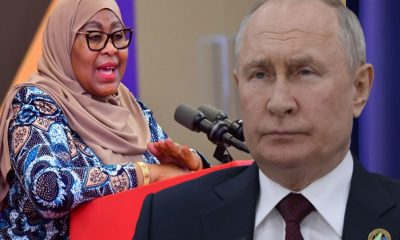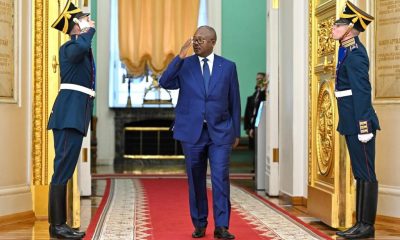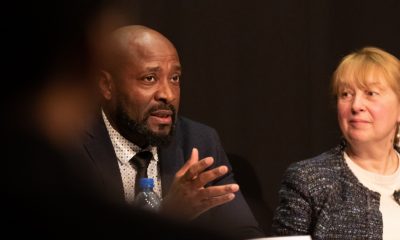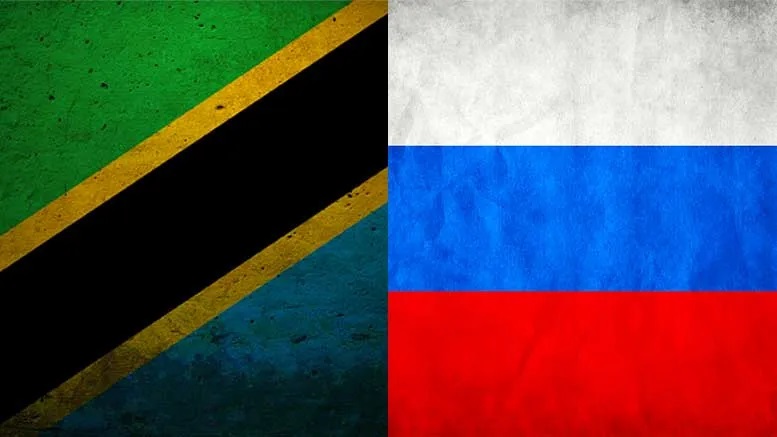World
Russia Looks More Like A Virtual Great Power Than Genuine Development Partner for Africa
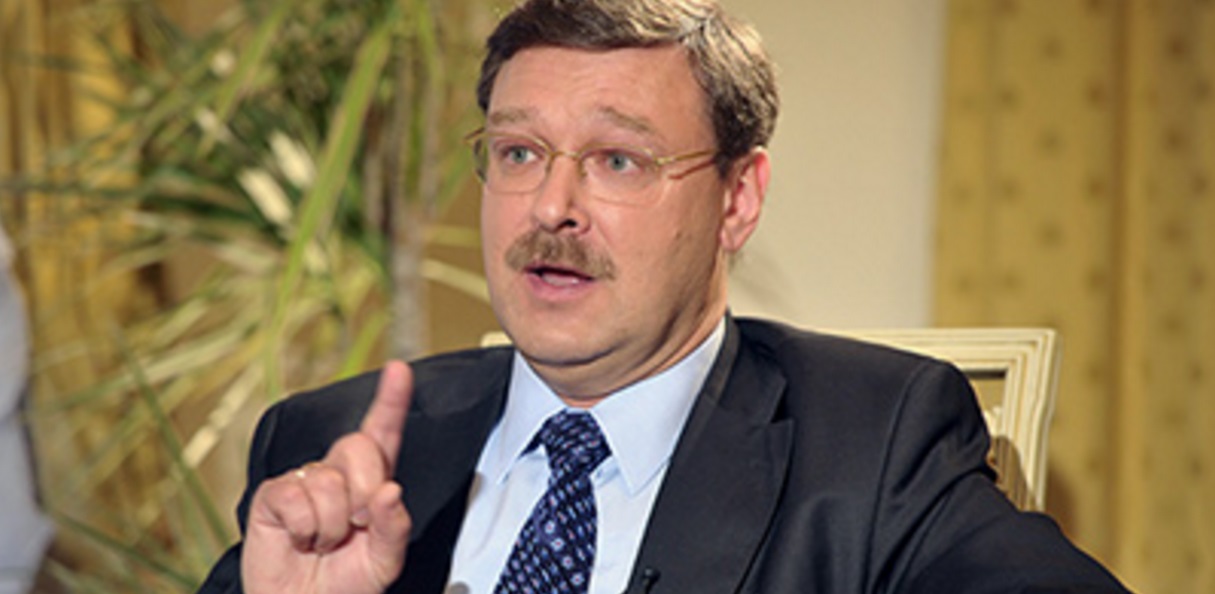
By Kestér Kenn Klomegâh
In its quest to strengthen post-Soviet relations and especially in the context of the emerging new multipolar world, Russia has to focus on its agenda and strategies for implementing promptly expected commitments for Africa.
Long before the U.S.-Africa Leaders Summit held in Washington, Russian officials had intensified their criticisms and confrontations in public statements. At this time, Russia has to frankly admit its policy weaknesses and the extremely low level of economic presence and review its social and cultural paradigms in Africa.
Criticisms came from the Kremlin administration to Federation Council and State Duma through the Foreign Affairs Ministry to Russian educational establishments and policy think tanks. Local Russian media regularly publishes such criticisms more than Russia’s visible achievements and unique success stories across Africa.
Instead of the slogans and ear-deafening noises relating to “neo-colonialism” that dominate the scene, Russians should then address the existing Western colonial tendencies by investing in competitive sectors and economic spheres in Africa. Building public perceptions through social and cultural activities with Africa. The reality is that African leaders await practical investment proposals from potential Russian investors.
While one school of thought has expressed little optimism that Russia can really recapture and make a huge recognizable economic impact compared to the Soviet era, the other school thinks that Russia can only make progress if the authorities make conscious efforts at least to deliver on their pledges and on those previous bilateral agreements promptly.
The new scramble for Africa is gaining momentum. While making beneficially-useful choices, African leaders are currently concerned about pushing for sustainable developments, building needed infrastructures and improving the welfare of the impoverished population. Understandably, infrastructure deficits and development questions present themselves as a brisk business for external players. Therefore, African leaders are consistently looking for partners with funds to invest and contribute towards transforming the economy.
At the U.S.-Africa Leaders Summit, the overarching message was to focus on “deepening and expanding the long-term US-Africa partnership and advancing shared priorities, amplifying African voices to meet this era’s defining challenges collaboratively.” The United States has seriously indicated its overwhelming support for making the African Union a member of the G-20 and promised $55 billion to Africa over the next three years.
After studying the agenda and results of the deliberations thoroughly, the United States has an ambitious agenda backed by a $55 billion budget. It signalled that Africans want closer ties with the United States desire and aspire to “close-up gaps” and further build mutually-trusted relations with Africa. In fact, China and Russia were not the most significant or prominent focused themes during the discussions there.
“United States remarks at the summit with Africa show an inability to engage in equitable dialogue,” says one headline in a local Russian media. Russian Foreign Ministry Spokeswoman Maria Zakharova said that the anti-Russian and anti-Chinese statements made at the U.S.-Africa summit show Washington is incapable of dialogue and fair competition.
“We have taken note of the numerous anti-Russian and anti-Chinese statements by US officials during the US-Africa summit. Once again, Washington has demonstrated it’s incapable of equal dialogue and decent competition, while its assurances that African countries have a freedom of choice testify to double standards,” the diplomat said.
Zakharova also mentioned important questions relating to basic political and economic freedoms, unfair competition, anti-Russian sanctions and Western agenda within the context of a multipolar world.
“Russia is united with its African friends that, despite enormous pressure from the West, including threats to withhold financial support, take an independent position, first of all, in the context of the situation around Ukraine,” she said.
Zakharova underlined the fact that Russia stands for the right of states to choose their political and economic partners, to follow their own values and the civilizational path of development. Russia offers honest, mutually beneficial and equal cooperation. And that Russia favours non-interference in the internal affairs of sovereign states.
Russian International Affairs Council, a non-government organization and policy think tank, also published an opinion article authored by Kirill Babaev, Director of the Institute of Far Eastern Studies of the Russian Academy of Sciences, Professor at the Financial University. He made an excellent analysis of the relations between Russia and Africa.
The article highlighted future perspectives based on the existing successes cloaked in building political dialogues during the previous years. On the other hand, he exposes for serious consideration by authorities some existing obstacles and weaknesses.
He wrote that Russia’s return to Africa had been discussed in the media and at various levels of power for two decades. However, the impetus given to Russian expansion to the African continent by the first Russia-Africa Summit in October 2019 made it the breakthrough event that made it possible to find an entry point for Russian business and Russia’s economic strategy on the continent, which today leads in terms of economic development.
That the African elites, especially those who studied at Soviet institutes and universities, still have memories of the struggle for the freedom of Africa. During the Soviet times, at the height of fighting against Western colonialism, there were economic offerings of the Soviet era.
However, all these cards are a matter of the past, while in the present, it has been difficult for Russia to offer Africa anything of value that could compete with large-scale Western investment or Chinese infrastructure projects (until recently), he wrote in his article.
Today the situation has changed radically, according to his expert assessment. “The main challenges for Russia in this regard are, first, the need to develop new, non-traditional sectors of economic cooperation, and second, an immense lack of personnel for successful work on the African continent and the promotion of this cooperation,” explained Professor Kirill Babaev.
In another publication headlined “Russian Business in Africa: Missed Opportunities and Prospects” appeared in the foreign policy journal Russia in Global Affairs, where Professor Alexei Vasilyev, former Special Representative of the Russian Federation to African Countries and Director of the Institute for African Studies, wrote in that article that Russian companies are pursuing their diverse interests in Africa.
The main reason is that Africa remains an enormous and large market for technology and manufacturing of consumer goods due to the increasing population and the growth of the middle class. Until recently, Russians have been looking at the mining industry, and economic cooperation is steadily expanding. But, Africa still accounts for just 1.5% of Russia’s investment which is a drop in the ocean. It must be admitted that Russia’s economic policy grossly lacks dynamism in Africa.
“African countries have been waiting for us for far too long; we lost our positions in post-apartheid Africa and have largely missed new opportunities. Currently, Russia lags behind leading foreign countries in most economic parameters in this region,” he pointed out in the article.
Consider another Russian media headline: “West seeks to dissuade African states from participating in Russia-Africa summit” which ran this December. Federation Council Deputy Speaker Konstantin Kosachev said Russia’s Western opponents are trying to prevent African states from taking part in the second Russia-Africa summit, scheduled to take place in July 2023 in Russia’s second-largest city of St. Petersburg.
“The second summit will be drastically different from the first one in terms of the atmosphere surrounding it. Our geopolitical rivals, primarily from the West, will do everything within their powers to prevent African partners from taking part in this meeting and to antithesize it to the Africa-US summit, which is currently taking place with wide participation of African states,” the Senator told a roundtable on Russia’s strategic interests in Africa.
In Senator Kosachev’s opinion, the first Russia-Africa summit held three years ago was successful, “but, in many respects, its results remained within the dimension of politics” and were not translated into additional projects in trade, economic, scientific or humanitarian cooperation.
“I’m sure it will be a very serious miscalculation on our part if the next year’s summit is not prepared in a drastically different fashion, providing each of its participants with a concise roadmap of our bilateral relations, with clear incentives to participate and conclude practical agreements,” the Deputy Speaker of Russia’s Upper Chamber said.
“Trade turnover speaks for itself. Roughly, the European Union’s trade with Africa stands at around $300 billion, China’s – at around $150 billion, and the United States – approximately $50-60 billion. Despite the tendency to grow, our current turnover is around $20 billion,” Senator Kosachev added, quoting trade figures to illustrate his argument.
In this sense, it can be expected that the second Russia-Africa summit, expected in July 2023 in St. Petersburg, will open the doors for many large investment projects on the continent.
Unlike Russia with poor relations with its trained professionals and specialists who graduated from Soviet and Russian educational establishments. At the U.S.-Africa Leaders Summit, there was an explicit indication to strengthen Africans in the entire structure in the process of re-setting relations and moving it to the next stage. That is an irreversibly strong positive step.
Professor Kirill Babaev also pointed out the necessity of putting together experienced professionals in his article. However, Russia needs to be ready for them, and this requires people. There are still very few Africanists with knowledge of the languages, specifics, and business customs of the continent in the country, and amid the current conditions, the state should pay special attention to this problem. The most important thing is to make efforts more practical, more consistent and more effective with African countries.
But so far, Russia has not pledged funds toward implementing its business projects and other policy objectives in Africa. While the Russian government is very cautious about making financial commitments, Russia’s financial institutions are hardly interested in stepping up their activities and are not closely involved in foreign policy initiatives in Africa.
With the current geopolitical changes, it is, however, hoped that Russian officials will rather focus on addressing all the weaknesses and obstacles seriously in order to enhance practical cooperation and to make a noticeable impact in Africa, as suggested by Kirill Babaev, Director of the Institute of Far Eastern Studies of the Russian Academy of Sciences.
World
Iranian Supreme Leader Ali Khamenei Dies After Air Strikes

By Dipo Olowookere
Iranian Supreme Leader, Mr Ayatollah Ali Khamenei, has died after coordinated airstrikes carried out by the United States and Israel on Tehran on Saturday morning.
His death was confirmed on Sunday morning by Iranian state media, which also disclosed that his daughter and grandchild were among those killed in the bombardment, which destroyed his compound.
Mr Khamenei was killed during a meeting with top leaders of the Middle East country yesterday, including the Defence Minister Amir Nasirzadeh and Revolutionary Guard commander Mohammad Pakpour, who reportedly died too.
His elimination has sparked mixed reactions, with some Iranians on the streets celebrating his demise, and others condemning the joint air strikes.
The President of the United States, Mr Donald Trump, described the late Iranian leader as “one of the most evil people in history,” expressing satisfaction at the action, which he said was “successful,” as it represented justice for both Iranians and Americans.
Meanwhile, Tehran has vowed to further respond to the attacks after initially firing missiles at six neighbours, including Qatar, Saudi Arabia, Kuwait, UAE, Bahrain, and Jordan.
Flight operations in the region have been disrupted because of the retaliatory action of Iran over the weekend, though most of the missiles were intercepted.
World
AfBD, AU Renew Call for Visa-Free Travel to Boost African Economic Growth

By Adedapo Adesanya
The African Development Bank (AfDB) and the African Union have renewed their push for visa-free travel to accelerate Africa’s economic transformation.
The call was reinforced at a High-Level Symposium on Advancing a Visa-Free Africa for Economic Prosperity, where African policymakers, business leaders, and development institutions examined the need for visa-free travel across the continent.
The consensus described the free movement of people as essential to unlocking Africa’s economic transformation under the African Continental Free Trade Area (AfCFTA).
The symposium was co-convened by AfDB and the African Union Commission on the margins of the 39th African Union Summit of Heads of State and Government in Addis Ababa.
The participants framed mobility as the missing link in Africa’s integration agenda, arguing that while tariffs are falling under AfCFTA, restrictive visa regimes continue to limit trade in services, investment flows, tourism, and labour mobility.
On his part, Mr Alex Mubiru, Director General for Eastern Africa at the African Development Bank Group, said that visa-free travel, interoperable digital systems, and integrated markets are practical enablers of enterprise, innovation, and regional value chains to translate policy ambitions into economic activity.
“The evidence is clear. The economics support openness. The human story demands it,” he told participants, urging countries to move from incremental reforms to “transformative change.”
Ms Amma A. Twum-Amoah, Commissioner for Health, Humanitarian Affairs and Social Development at the African Union Commission, called for faster implementation of existing continental frameworks.
She described visa openness as a strategic lever for deepening regional markets and enhancing collective responses to economic and humanitarian crises.
Former AU Commission Chairperson, Ms Nkosazana Dlamini-Zuma, reiterated that free movement is central to the African Union’s long-term development blueprint, Agenda 2063.
“If we accept that we are Africans, then we must be able to move freely across our continent,” she said, urging member states to operationalise initiatives such as the African Passport and the Free Movement of Persons Protocol.
Ghana’s Trade and Industry Minister, Mrs Elizabeth Ofosu-Adjare, shared her country’s experience as an early adopter of open visa policies for African travellers, citing increased business travel, tourism, and investor interest as early dividends of greater openness.
The symposium also reviewed findings from the latest Africa Visa Openness Index, which shows that more than half of intra-African travel still requires visas before departure – seen by participants as a significant drag on intra-continental commerce.
Mr Mesfin Bekele, Chief Executive Officer of Ethiopian Airlines, called for full implementation of the Single African Air Transport Market (SAATM), saying aviation connectivity and visa liberalisation must advance together to enable seamless travel.
Regional representatives, including Mr Elias Magosi, Executive Secretary of the Southern Africa Development Community, emphasised the importance of building trust through border management and digital information-sharing systems.
Ms Gabby Otchere Darko, Executive Chairman of the Africa Prosperity Network, urged governments to support the “Make Africa Borderless Now” campaign, while tourism campaigner Ras Mubarak called for more ratifications of the AU Free Movement of Persons protocol.
Participants concluded that achieving a visa-free Africa will require aligning migration policies, digital identity systems, and border infrastructure, alongside sustained political commitment.
World
Nigeria Exploring Economic Potential in South America, Particularly Brazil

By Kestér Kenn Klomegâh
In this interview, Uche Uzoigwe, Secretary-General of NIDOA-Brazil, discusses the economic potential in South America, particularly Brazil, and investment incentives for Brazilian corporate partners for the Federal Republic of Nigeria (FRN). Follow the discussion here:
How would you assess the economic potential in the South American region, particularly Brazil, for the Federal Republic of Nigeria? What investment incentives does Nigeria have for potential corporate partners from Brazil?
As the Secretary of NIDOA Brazil, my response to the questions regarding the economic potentials in South America, particularly Brazil, and investment incentives for Brazilian corporate partners would be as follows:
Brazil, as the largest economy in South America, presents significant opportunities for the Federal Republic of Nigeria. The country’s diverse economy is characterised by key sectors such as agriculture, mining, energy, and technology. Here are some factors to consider:
- Natural Resources: Brazil is rich in natural resources like iron ore, soybeans, and biofuels, which can be beneficial to Nigeria in terms of trade and resource exchange.
- Growing Agricultural Sector: With a well-established agricultural sector, Brazil offers potential collaboration in agri-tech and food security initiatives, which align with Nigeria’s goals for agricultural development.
- Market Size: Brazil boasts a large consumer market with a growing middle class. This represents opportunities for Nigerian businesses looking to export goods and services to new markets.
- Investment in Infrastructure: Brazil has made significant investments in infrastructure, which could create opportunities for Nigerian firms in construction, engineering, and technology sectors.
- Cultural and Economic Ties: There are historical and cultural ties between Nigeria and Brazil, especially considering the African diaspora in Brazil. This can facilitate easier business partnerships and collaborations.
In terms of investment incentives for potential corporate partners from Brazil, Nigeria offers several attractive incentives for Brazilian corporate partners, including:
- Tax Incentives: Various tax holidays and concessions are available under the Nigerian government’s investment promotion laws, particularly in key sectors like agriculture, manufacturing, and technology.
- Repatriation of Profits: Brazil-based companies investing in Nigeria can repatriate profits without restrictions, thus enhancing their financial viability.
- Access to the African Market: Investment in Nigeria allows Brazilian companies to access the broader African market, benefiting from Nigeria’s membership in regional trade agreements such as ECOWAS.
- Free Trade Zones: Nigeria has established free trade zones that offer companies the chance to operate with reduced tariffs and fewer regulatory burdens.
- Support for Innovation: The Nigerian government encourages innovation and technology transfer, making it attractive for Brazilian firms in the tech sector to collaborate, particularly in fintech and agriculture technology.
- Collaborative Ventures: Opportunities exist for joint ventures with local firms, leveraging local knowledge and networks to navigate the business landscape effectively.
In conclusion, fostering a collaborative relationship between Nigeria and Brazil can unlock numerous economic opportunities, leading to mutual growth and development in various sectors. We welcome potential Brazilian investors to explore these opportunities and contribute to our shared economic goals.
In terms of this economic cooperation and trade, what would you say are the current practical achievements, with supporting strategies and systemic engagement from NIDOA?
As the Secretary of NIDOA Brazil, I would highlight the current practical achievements in economic cooperation and trade between Nigeria and Brazil, alongside the supporting strategies and systemic engagement from NIDOA.
Here are some key points:
Current Practical Achievements
- Increased Bilateral Trade: There has been a notable increase in bilateral trade volume between Nigeria and Brazil, particularly in sectors such as agriculture, textiles, and technology. Recent trade agreements and discussions have facilitated smoother trade relations.
- Joint Ventures and Partnerships: Successful joint ventures have been established between Brazilian and Nigerian companies, particularly in agriculture (e.g., collaboration in soybean production and agricultural technology) and energy (renewables, oil, and gas), demonstrating commitment to mutual development.
- Investment in Infrastructure Development: Brazilian construction firms have been involved in key infrastructure projects in Nigeria, contributing to building roads, bridges, and facilities that enhance connectivity and economic activity.
- Cultural and Educational Exchange Programs: Programs facilitating educational exchange and cultural cooperation have led to strengthened ties. Brazilian universities have partnered with Nigerian institutions to promote knowledge transfer in various fields, including science, technology, and arts.
Supporting Strategies
- Strategic Trade Dialogue: NIDOA has initiated regular dialogues between trade ministries of both nations to discuss trade barriers, potential markets, and cooperative opportunities, ensuring both countries are aligned in their economic goals.
- Investment Promotion Initiatives: Targeted initiatives have been established to promote Brazil as an investment destination for Nigerian businesses and vice versa. This includes showcasing success stories at international trade fairs and business forums.
- Capacity Building and Technical Assistance: NIDOA has offered capacity-building programs focused on enhancing Nigeria’s capabilities in agriculture and technology, leveraging Brazil’s expertise and sustainable practices.
- Policy Advocacy: Continuous advocacy for favourable trade policies has been a key focus for NIDOA, working to reduce tariffs and promote economic reforms that facilitate investment and trade flows.
Systemic Engagement
- Public-Private Partnerships (PPPs): Engaging the private sector through PPPs has been essential in mobilising resources for development projects. NIDOA has actively facilitated partnerships that leverage both public and private investments.
- Trade Missions and Business Delegations: Organised trade missions to Brazil for Nigerian businesses and vice versa, allowing for direct engagement with potential partners, fostering trust and opening new channels for trade.
- Monitoring and Evaluation: NIDOA implements a rigorous monitoring and evaluation framework to assess the impact of various initiatives and make necessary adjustments to strategies, ensuring effectiveness in achieving economic cooperation goals.
Through these practical achievements, supporting strategies, and systemic engagement, NIDOA continues to play a pivotal role in enhancing economic cooperation and trade between Nigeria and Brazil. By fostering collaboration and leveraging shared resources, we aim to create a sustainable and mutually beneficial economic environment that promotes growth for both nations.
Do you think the changing geopolitical situation poses a number of challenges to connecting businesses in the region with Nigeria, and how do you overcome them in the activities of NIDOA?
The changing geopolitical situation indeed poses several challenges for connecting businesses in the South American region, particularly Brazil, with Nigeria. These challenges include trade tensions, shifting alliances, currency fluctuations, and varying regulatory environments. Below, I will outline some of the specific challenges and how NIDOA works to overcome them:
Current Challenges
- No Direct Flights: This challenge is obviously explicit. Once direct flights between Brazil and Nigeria become active, and hopefully this year, a much better understanding and engagement will follow suit.
- Trade Restrictions and Tariffs: Increasing trade protectionism in various regions can lead to higher tariffs and trade barriers that hinder the movement of goods between Brazil and Nigeria.
- Currency Volatility: Fluctuations in the value of currencies can complicate trade agreements, pricing strategies, and overall financial planning for businesses operating in both Brazil and Nigeria.
- Different regulatory frameworks and compliance requirements in both countries can create challenges for businesses aiming to navigate these systems efficiently.
- Supply Chain Disruptions: Changes in global supply chains due to geopolitical factors may disrupt established networks, impacting businesses relying on imports and exports between the two nations.
Overcoming Challenges through NIDOA.
NIDOA actively engages in discussions with both the Brazilian and Nigerian governments to advocate for favourable trade policies and agreements that reduce tariffs and improve trade conditions. This year in October, NIDOA BRAZIL holds its TRADE FAIR in São Paulo, Brazil.
What are the popular sentiments among the Nigerians in the South American diaspora? As the Secretary-General of the NIDOA, what are your suggestions relating to assimilation and integration, and of course, future perspectives for the Nigerian diaspora?
As the Secretary-General of NIDOA, I recognise the importance of understanding the sentiments among Nigerians in the South American diaspora, particularly in Brazil.
Many Nigerians in the diaspora take pride in their cultural roots, celebrating their heritage through festivals, music, dance, and culinary traditions. This cultural expression fosters a sense of community and belonging.
While many individuals embrace their new environments, they often face challenges related to cultural differences, language barriers, and social integration, which can lead to feelings of isolation.
Many express optimism about opportunities in education, business, and cultural exchange, viewing their presence in South America as a chance to expand their horizons and contribute to economic activities both locally and back in Nigeria.
Sentiments regarding acceptance vary; while some Nigerians experience warmth and hospitality, others encounter prejudice or discrimination, which can impact their overall experience in the host country. NIDOA BRAZIL has encouraged the formation of community organisations that promote networking, cultural exchange, and social events to foster a sense of belonging and support among Nigerians in the diaspora. There are currently two forums with over a thousand Nigerian members.
Cultural Education and Awareness Programs: NIDOA BRAZIL organises cultural education programs that showcase Nigerian heritage to local communities, promoting mutual understanding and appreciation that can facilitate smoother integration.
Language and Skills Training: NIDOA BRAZIL provides language courses and skills training programs to help Nigerians, especially students in tertiary institutions, adapt to their new environment, enhancing communication and employability within the host country.
Engaging in Entrepreneurship: NIDOA BRAZIL supports the entrepreneurial spirit among Nigerians in the diaspora by facilitating access to resources, mentorship, and networks that can help them start businesses and create economic opportunities.
Through its AMBASSADOR’S CUP COMPETITION, NIDOA Brazil has engaged students of tertiary institutions in Brazil to promote business projects and initiatives that can be implemented in Nigeria.
NIDOA BRAZIL also pushes for increased tourism to Brazil since Brazil is set to become a global tourism leader in 2026, with a projected 10 million international visitors, driven by a post-pandemic rebound, enhanced air connectivity, and targeted marketing strategies.
Brazil’s tourism sector is poised for a remarkable milestone in 2026, as the country expects to welcome over 10 million international visitors—surpassing the previous record of 9.3 million in 2025. This expected surge represents an ambitious leap, nearly doubling the country’s foreign-arrival numbers within just four years, a feat driven by a combination of pent-up global demand, strategic air connectivity improvements, and a highly targeted marketing campaign.
-

 Feature/OPED6 years ago
Feature/OPED6 years agoDavos was Different this year
-
Travel/Tourism10 years ago
Lagos Seals Western Lodge Hotel In Ikorodu
-

 Showbiz3 years ago
Showbiz3 years agoEstranged Lover Releases Videos of Empress Njamah Bathing
-

 Banking8 years ago
Banking8 years agoSort Codes of GTBank Branches in Nigeria
-

 Economy3 years ago
Economy3 years agoSubsidy Removal: CNG at N130 Per Litre Cheaper Than Petrol—IPMAN
-

 Banking3 years ago
Banking3 years agoSort Codes of UBA Branches in Nigeria
-

 Banking3 years ago
Banking3 years agoFirst Bank Announces Planned Downtime
-

 Sports3 years ago
Sports3 years agoHighest Paid Nigerian Footballer – How Much Do Nigerian Footballers Earn


